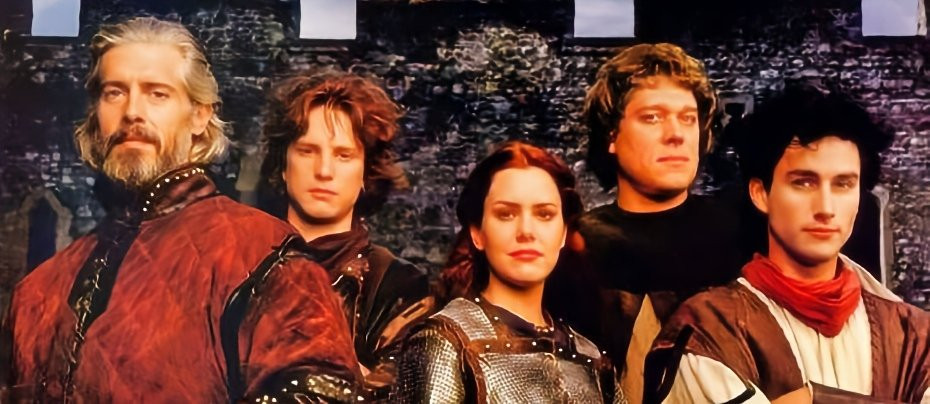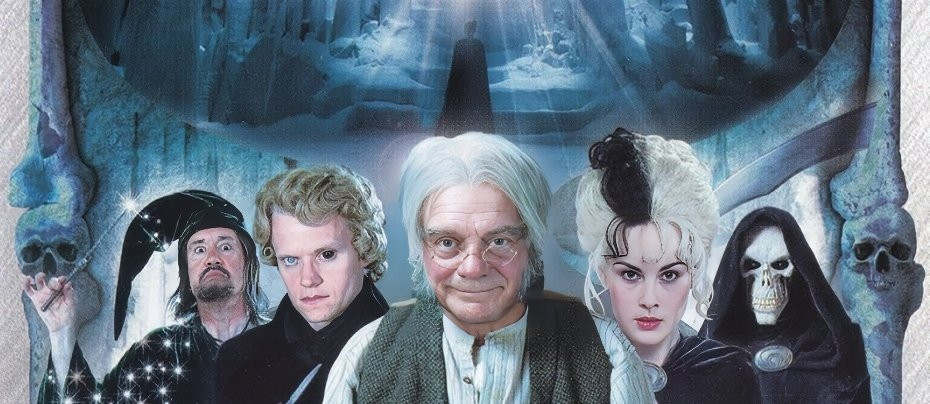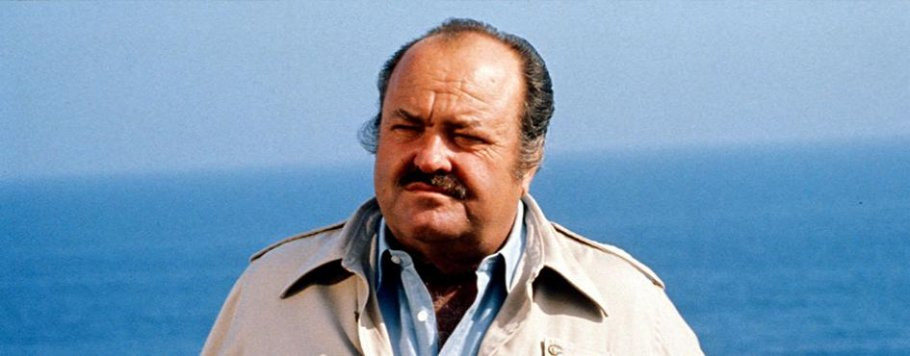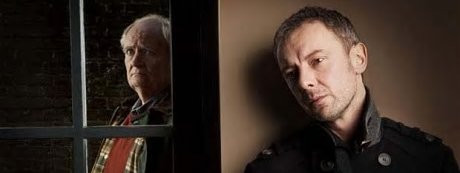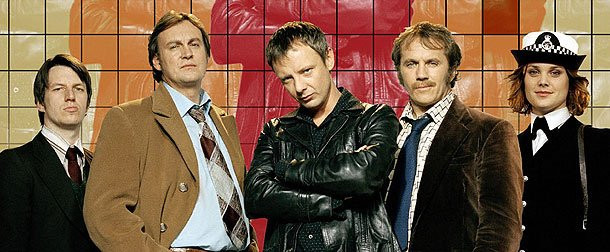
Life on Mars
2006 - United Kingdom"My name is Sam Tyler. I had an accident and woke up in 1973. Am I mad, in a coma, or back in time? Whatever's happened it's like I'm on a different planet. Now maybe if I can work out the reason...I can get home."
The surprise hit of 2006, Life On Mars took seven years to come to the screen and went through around 36 drafts from its first in 1998 to its last in 2006. The series unceremoniously grabs Detective Chief Inspector Sam Tyler (John Simm) out of his politically correct world of intelligence led, forensically aware, modern day policing and hurls him backwards in time to 1973, where policing methods are crude to say the least and sexism, racism, and beating the 'truth' out of suspects are regarded as routine parts of the job.
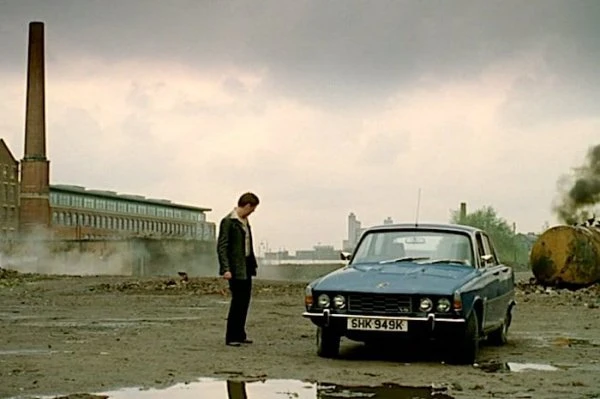
Produced by Kudos Film & Television — the makers of Spooks and Hustle — for BBC Wales, the series was created by writers Tony Jordan, Matthew Graham and Ashley Pharoah, who also provide a majority of the scripts. The fourth writer on the first series was Chris Chibnall. "We'd all just written City Central a cop show for the BBC and we thought, 'no more cops' and we all agreed" said Pharoah. "But just before we moved on we thought 'if there was one cop show in the world that we'd like to write-what would it be?' And the answer from all three of us was The Sweeney. So we thought okay, let's redo it."
But realising that it was unlikely any broadcaster would be interested in redoing the classic 70's cop show, and bearing in mind how police methodology had changed, the writers tried to find a new take on the theme. "So we thought 'what if we take someone from our world and throw them into The Sweeney and saw how they coped with the prejudices then?'" Unfortunately, this idea didn't win much favour with any TV broadcaster. "We pitched it to every single broadcaster in the country. Some of them more than once." Said Pharoah. "Back then, broadcasters just weren't comfortable with something like that, something that wasn't set in the real world and that had a fantasy element to it," Matthew Graham later told SFX Magazine.
However, the series eventually attracted the attention of BBC Wales Head of Drama Julie Gardner, who persuaded the overall Head of Drama at the BBC, Jane Tranter, to commission the programme for BBC One. By that time Gardner was already a high flyer at the BBC having been instrumental in heading up the hugely successful revival of Doctor Who. (Gardner has since also overseen two Doctor Who spin-offs: Torchwood, an adult science fiction drama and The Sarah Jane Adventures, a children's fantasy).

Life On Mars is not only a thrilling police series shown at a cracking pace but going deeper it offers a provocative take on recent social history as well as comparing modern day policing methods with those available in the early seventies. Central to this theme is the conflict in attitudes between Tyler and his 1970s colleagues, not least of all his 'new' boss, DCI Gene Hunt (Philip Glenister), a man who is undeterred by rules, regulations and codes of conducts and who would rather go with his instincts than scientific evidence: "The golden rule is first one to speak did it!" he tells Tyler just before they go to interview a group of witnesses to a murder.
"When we came up with that character," said Matthew Graham, "there was fun in imagining someone with that freedom of manoeuvre." Hunt would think nothing of beating a confession out of a suspect, and in the first series we see him protecting a local mobster because he 'keeps the streets clean.' Something unthinkable in today’s modern policing world. "He doesn't think about those things, and there's something fantastically appealing about that." Said Graham. Perhaps in a way the secret of the series success is in the fact that it shows policing in a way that many people still wished it was carried out. But it's a complete culture shock for Tyler and a vastly different world from the one he is used to. It is also one that he desperately wants to escape from.
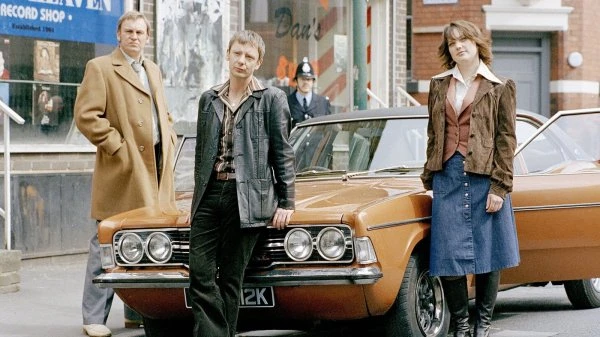
In spite of its success the writers decided to bring Life On Mars to a conclusion at the end of its second season. Towards the end of its run the character of Frank Morgan was introduced as Sam's boss from the Borough of Hyde where Sam was supposedly transferred from in episode one of season one. Morgan is working for operation codenamed M.A.R.S. (Metropolitan Accountability and Reconciliation Strategy), the purpose of which is to investigate police corruption for Manchester. Their target is Gene Hunt.
Sam comes to believe that Frank is his surgeon in the future, where Sam has been laying in a coma in a hospital bed but can sometimes hear the voices of those around him through televisions, telephones and in his head. Sam is told that a tumour in his head is keeping him in this coma, and Sam surmises that Gene Hunt is the manifestation of the tumour in this fantasy world. Morgan tells Sam that he must destroy Gene in order to complete the 'operation' and come home. As expected at the end of the series Sam does return to the modern day and returns to work as well. But the ghosts from the past are still very much with him and Sam knows what he has to do...
Returning to work in the 21st century Sam quickly realises that he can no longer relate to any of his colleagues and has difficulty in coming to terms with modern police practices. During a Senior Management Team meeting Sam accidently cuts himself on a pencil without actually realising it. When it is pointed out to him by a colleague that he has blood pouring out from his finger Sam remembers what a character in 1973 had told him "you're alive when you can feel." Going up to the roof of the police station, Sam takes one last look at modern Manchester before sprinting to the edge of the building where he launches himself into the air. Sam returns to 1973 just in time to save his colleagues from the hands of a team of armed robbers. Later that day as Sam leaves a pub with his 1973 colleagues he hears voices over the radio saying they are 'losing him,' suggesting that in 2007 he is unconscious following his leap from the building. He switches the radio station saying "I never liked that channel anyway", and as the car drives off we hear David Bowie singing 'Life On Mars.'
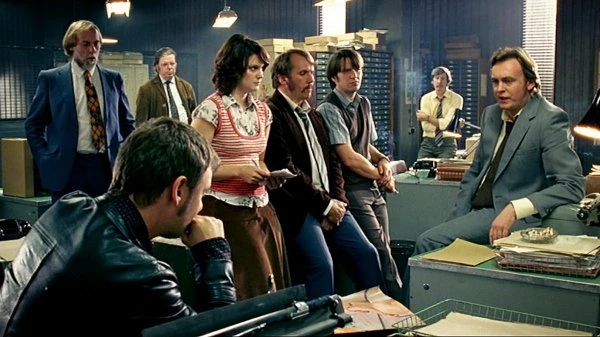
Ultimately, the ending is an ambiguous one leaving it up to the viewer to decide which reality to choose. It was explained to Sam that he really was of the era that Life On Mars was set in and a traumatic experience as a child made him mentally block out his past. Or did Sam choose to live his last few seconds on Earth in the fantasy world that finally became more real to him? In interview writer Matthew Graham said, "when I wrote it, what I was trying to say is that he’s died, and that for however long that last second of life is going to be, it will stretch out for an age, as an eternity for him. And so when he drives off in that car, he’s really driving off into the afterlife." But viewers can and will reach their own conclusions. Was he mad, in a coma, back in time, or all three?
The follow-up series to Life on Mars was Ashes to Ashes
Seen this show? How do you rate it?
Seen this show? How do you rate it?
Published on December 31st, 2018. Written by Laurence Marcus (June 2007) for Television Heaven.




